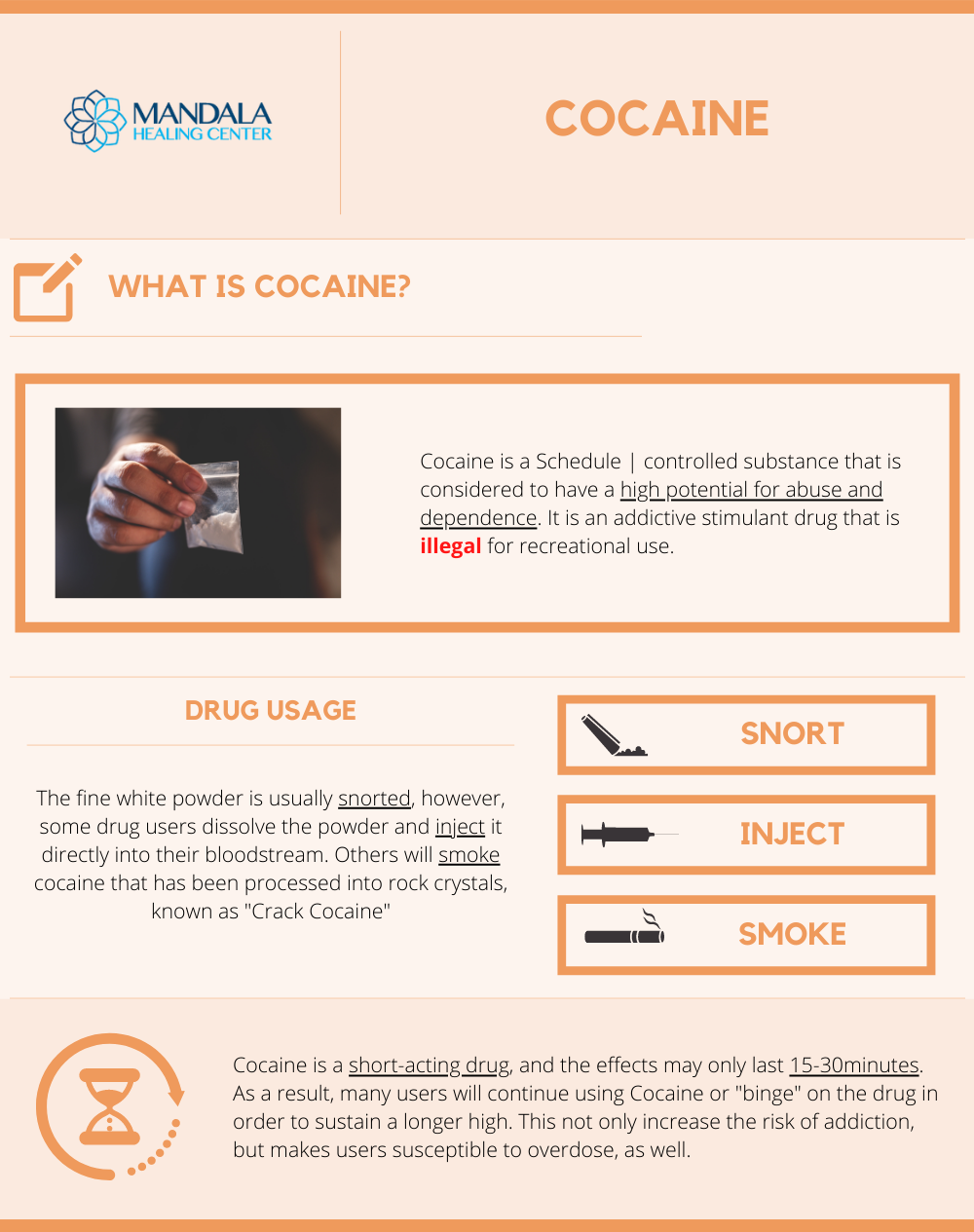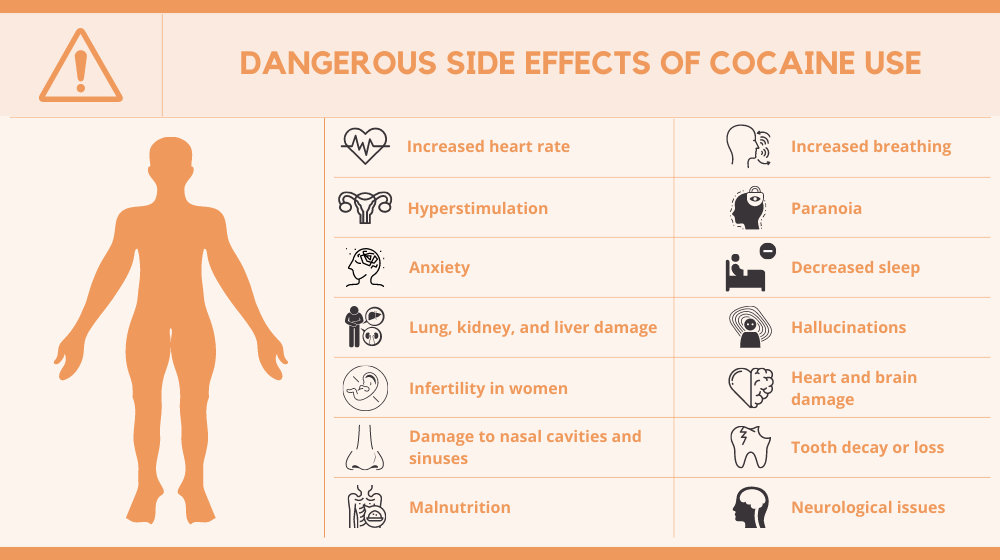Cocaine is a highly addictive stimulant drug that many people in the United States use recreationally. People may begin to use cocaine for its pleasant effects, such as euphoria and increased energy. In a short time, people can lose control of their cocaine abuse. Even using the drug occasionally puts you at increased risk of developing a severe, life-changing addiction.
Cocaine alters the way your brain works. It interferes with your brain’s pleasure and reward centers and can impact your mental health for a long time after you stop using it. It also causes many unintended physical side effects and can lead to ongoing, serious health issues.
For many people who use cocaine, one of the most noticeable physical effects is weight loss. While the relationship between cocaine and weight loss is still being studied, it is clear that there is a connection. Some people who struggle to lose weight in healthy ways turn to cocaine for a quick fix, and fear of gaining weight prevents people from getting the help they need to stop using this dangerous drug.
If you or someone you love uses cocaine and are curious about the dangerous connection between cocaine and weight loss, we have put together a guide on the topic for you. It is important to understand the risks of this highly addictive drug and learn about effective ways to overcome your cocaine addiction.
What is Known About the Cocaine and Weight Loss Connection
There isn’t a clear answer about why cocaine use usually leads to weight loss. We know a lot about how cocaine works in the body, and this allows us to make important connections on this topic.
First, cocaine is a powerful stimulant drug. Cocaine quickly passes into the bloodstream and has an almost immediate effect on the central nervous system (CNS). The increased activity of the CNS leads to increased physical activity, decreased sleep, and a significant decrease in a person’s appetite.[1] These factors could lead to weight loss.
Research shows that very quick weight loss can wreak havoc on the body’s major systems.[2] People who abuse cocaine are at increased risk of long-term damage to their health as a result of losing weight too quickly or becoming malnourished.
It is also proven that people who lose weight while using cocaine tend to gain it all back very quickly once they overcome their addiction. Studies suggest that quickly losing and gaining weight can negatively impact your metabolism for years to come.[1]
How Does Cocaine Cause Weight Loss?
In addition to increasing the activity of a person’s central nervous system (CNS), researchers believe that cocaine may increase a person’s metabolism.[3] This boost in metabolism means that the person will burn more calories doing the same activities than before they began using cocaine. People are often more active for longer periods when using cocaine. They sleep less, too, meaning that they are active and awake more often. All this adds up to additional calories being burned throughout the day.
The appetite-suppressing effects of cocaine also contribute to weight loss. The drug blocks people’s ability to feel hunger cues and gives them additional energy, meaning that they eat less while using cocaine. Eating less and burning significantly more calories leads to very fast, unhealthy weight loss.
Researchers are also studying whether cocaine may affect people’s ability to burn and store fat.[3] Evidence suggests that the drug may prevent people from storing fat in the way they would without using cocaine–and this can contribute to weight loss, too.
Dangerous Side Effects of Cocaine Use
While some people enjoy the short-term effects, including weight loss, that cocaine offers, this highly-addictive drug can cause significant harm to your mental, physical, and social health. The risk of addiction to cocaine is very high. People who begin to use cocaine are more likely to experience financial and legal trouble. They also face serious risks to their health, including:[1]
- Increased heart rate and breathing
- Hyperstimulation
- Paranoia and anxiety
- Decreased/interrupted sleep
- Lung, kidney, and liver damage
- Hallucinations
- Infertility in women
- Heart and brain damage
- Damage to nasal cavities and sinuses
- Tooth decay or loss
- Malnutrition
- Neurological issues
Cocaine use should not be taken lightly. This highly-addictive stimulant may give you enjoyable short-term effects, but the risk of developing a devastating addiction is high. Do not sacrifice your long-term health and wellbeing for the short-term effects of this dangerous drug. Get the help you need to get back in control of your substance abuse.
Find Help for Cocaine Abuse and Addiction Today
If you or someone you care about needs addiction treatment or support during addiction recovery, you are not alone. Reach out to the staff here at the Mandala Healing Center for information about our programs.
We offer treatment options that can empower you during your recovery from addiction. Call now to speak with one of our compassionate staff.
References:















